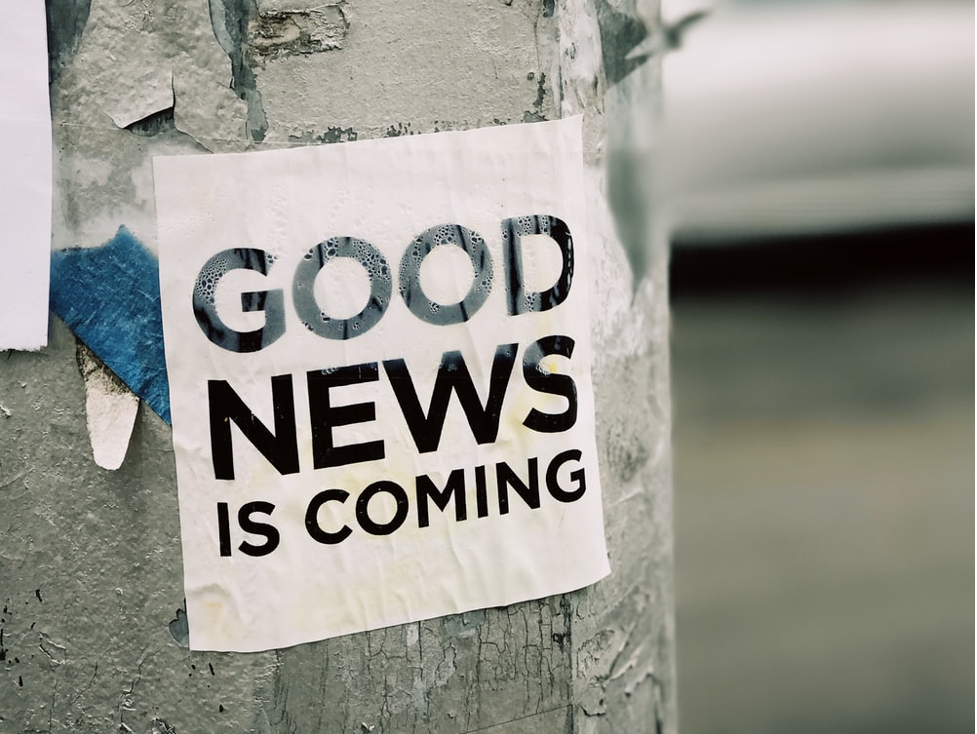I imagine we all are hoping for a better 2021! In my town of Greenbelt, Maryland, we marked the ending of the tumultuous 2020 by all going outside at midnight on New Year’s Eve to bang pots and pans. Not a new idea, yet very therapeutic and symbolic of the feeling of “let this be over” and “something better be ahead.”
The start of a new year is a great time to look at our hopes. I’ve been thinking a lot about hope – what is it anyhow, and where does it come from?
One place to start is distinguishing hope from fantasy. I suspect I share a number of hopes with you. I hope the vaccine works and the threat of the coronavirus is gone before the end of 2021, ideally by summer! I hope the new president and administration allows us to focus as a nation on what is important so we can move away from fear-based hate and disdain for each other and our government.
I hope that the attention to racial inequity and racism that came out of the closet after George Floyd’s murder is real and the coalition working for racial justice grows exponentially. I hope that this work leads to a broader coalition of white people willing to be led by people of color in righting our historical violence against Blacks and people of color and working in partnership for more equitable communities and world.
What makes my hopes or any hope more than wishful thinking? I have a friend who is fond of reminding me that hope without action is fantasy. How do I turn my hopes into action? I live in a community where there are a lot of Black Lives Matter signs on lawns and in windows. Putting up the sign is an action. There are other actions like showing up for the City Council meeting on rethinking our policing system or vigils in support of state legislation, where there are many fewer people present. Some actions are harder than others.
Love, I am told, is a verb. Just like my desire for more racial equity, my desire to be more loving with my wife and children requires that I act to change habits that limit my being loving towards them.
Which actions? What certainty is there that any particular actions will result in my hopes becoming real? For me, this is where hope connects to faith. Clearly, I don’t have the power on my own to change any of the things I hope for. For hope to be more than fantasy for me, I need faith in something bigger than me.
My brother-in-law lives in Europe. On a recent family call discussing the pace of change in America, he reminded us of “cathedral time.” The masons and workers on the famous European cathedrals knew they would not live to see the completion of the cathedral. Most cathedrals took more than a century to build, the one in Cologne 500 years.
Hope allows me to accept that a lot of the changes I hope for may be “cathedral time” changes. Faith in a power greater than me – my belief in a power that desires good for all of us– allows me to continue to hope and work for changes in me and my community and the world. I temper my hope with acceptance that I am not in charge of results or timing. My work is to do the next right action with as much love as I can muster and leave the results to the Power for Good.
Happy 2021, and may you find hope that nurture and guides you!
This post was published on Recovery Speakers on January 5, 2021.




I hope you and your are safe and well.
There lives the dearest freshness deep down things;
And though the last lights off the black West went
Oh, morning, at the brown brink eastward, springs —
Because the Holy Ghost over the bent
World broods with warm breast and with ah! bright wings. GM Hopkins
Thanks Dan, best to you and your family and your work with arts and the aging. I am pulling together ideas from different readers on hope – what you hope for, your source of hope, and how you renew hope when threatened. Hoping you and a few other readers might hum a few bars from your perspective on hope! Peace, Tom
I join in your hopes, Tom, and I love the Cathedral image. I first wrote about taking the long view four years ago (https://shirinmcarthur.com/2016/11/13/tapping-into-the-really-long-view/) and return to that idea frequently.
Thanks Shirin, yes the last four years have been sobering in terms of the work for justice and change. Grateful to have hope, compassion and friends like you to remind me to take the long view and to what I can today. Peace, Tom
Good morning Tom. So happy that I-waited for a quiet unrushed moment to read your New Years blog. The New Oxford dictionary defines hope when a noun as a feeling of expectation and desire for a certain thing to happen. It can be a person or thing that can help some one or hope can be grounds for believing that something good may happen. It can also be a verb ……wanting something to happen.
Yes, it was beautiful to see the singleness of purpose this summer between all ethnicities. The mixing of races, colors, nationalities was AWESOME. We have settled down now and there’s not much action. I truly believe that the atrocity that took place this pastWednesday will wake up White America to the difference in which the people were treated Wednesday and how Black Lives Matter were treated in our nations capitol this summer. Thank you Tom. Please keep writing your blogs. They are helpful, insightful and needed. My Hope for2021 will be that we as a nation become more Unified.,loving and accepting Of each other.
That my daughter Karen will be able to have surgery to successfully remove the cancer from her leg.
That I can increase my spiritual practices and have a daily closer contact with God. That I will apply the spiritual principle of love in all my affairs.
Thanks Evangelyn for adding to our discussion of hope. And pointing out the tendency for attention to racial justice to be episodic and thus wax and wane. Wednesday Jan 6 is the book mark to George Floyd’s murder. One reminded us that there are flagrant inequities in America. The latter reminded us it is not Donald Trump’s America. It is our America where racism, anti-Semitism, homophobia are rampant and organized. Hope like faith requires action for love to have a chance. Peace, Tom
Tom, I think a lot of our Civil Rights leaders had that hope. They knew they would not see full and complete racial equality in their lifetime, but they gave their energy, focus, and even their life to the present moment, the present dream. They were a small part of the big picture. That had to be sufficient.
Thanks Joe, yes they did. John Lewis seemed to be the person most recently front and center who had an unshakeable faith. The past week has caused me long for more faith-based leaders like you and the civil rights leaders. I wonder if it might be time to expand the teaching of nonviolent resistance. It appears we will need that and a lot of faith to move through our discord. In my quiet time over the weekend, it occurred to me that the people best positioned to lead the healing of America are the leaders of our religious and civic institutions. Yet too often narrow commitment to single issues makes them part of the problem. My prayer is that a new generation of faith leaders will step forward to help us bridge the divide back to our professed shared values of love and justice. Peace, Tom